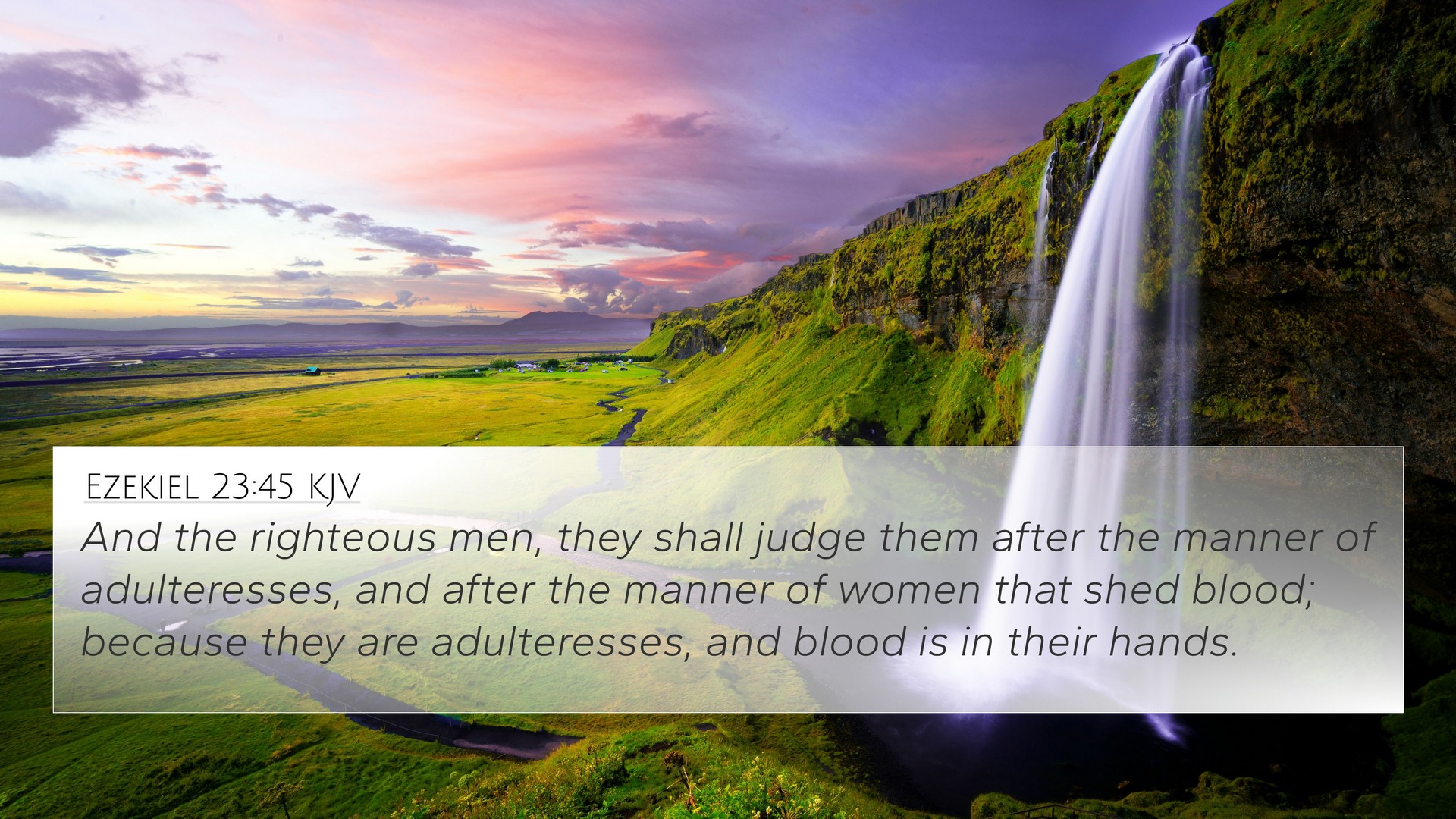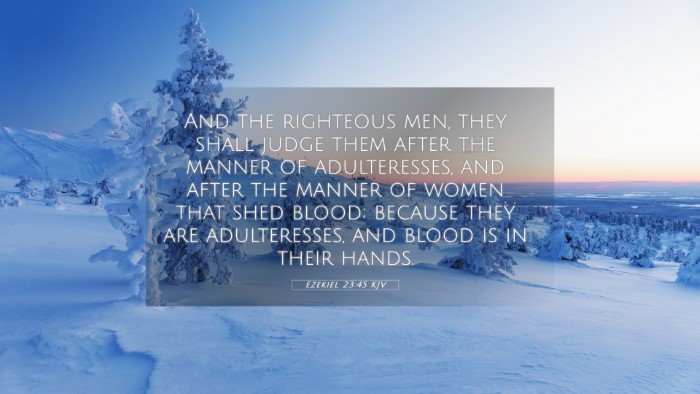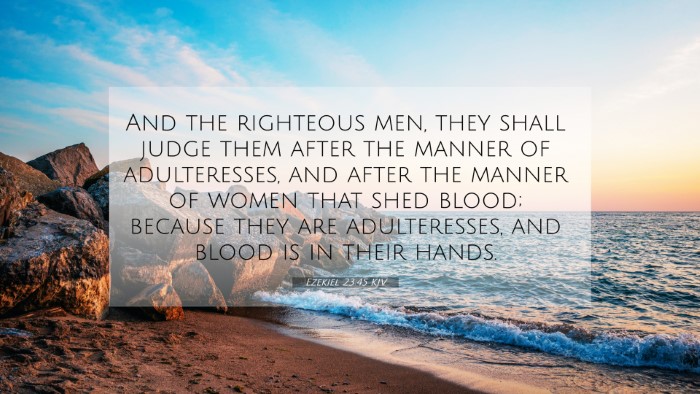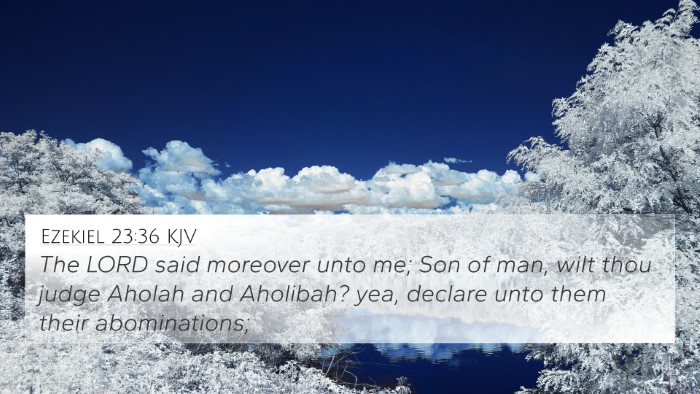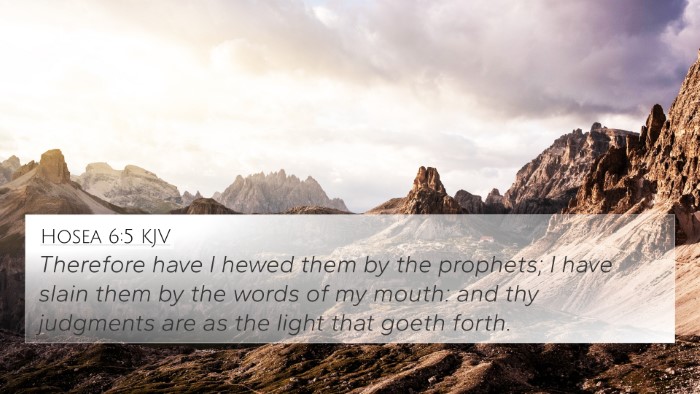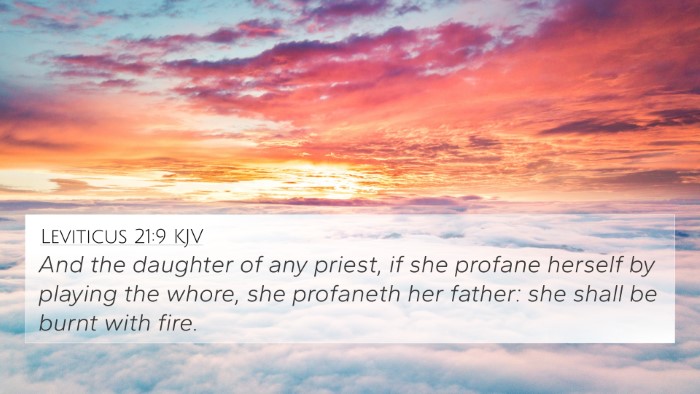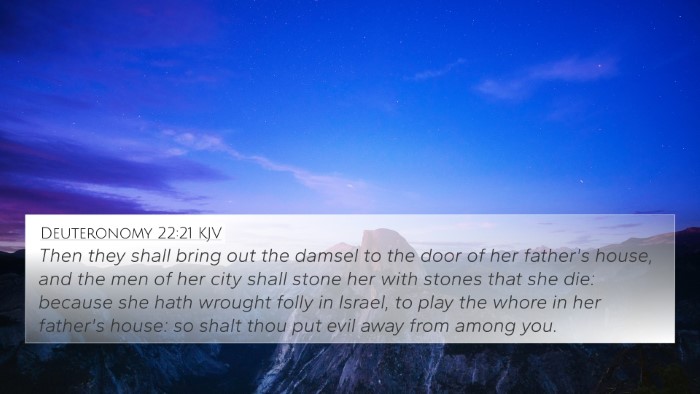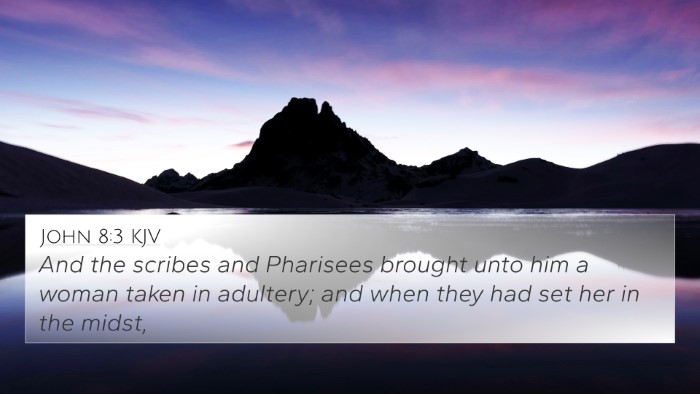Ezekiel 23:45 - Understanding the Verse
Ezekiel 23:45 states: "And the righteous men, they shall judge them after the manner of adulteresses, and after the manner of women that shed blood, because they are adulteresses, and blood is in their hands."
Context and Summary
In this chapter, the prophet Ezekiel uses the allegorical imagery of two sisters, Oholah and Oholibah, to represent the kingdoms of Israel and Judah. The overarching theme concerns spiritual unfaithfulness and the subsequent judgment from God. In verse 45, the emphasis is placed on "righteous men" who will judge these unfaithful entities. The notion of judgment here is illustrative of moral and spiritual betrayal.
Commentary Insights
Matthew Henry highlights that the term "righteous men" implies those who are just in administering God's judgment. He suggests that the unfaithful actions of Israel and Judah involve idolatry and the shedding of innocent blood. Thus, the judgment reflects their deeds.
Albert Barnes expounds upon the phrase "after the manner of adulteresses," noting that this refers to the societal norms adopted by the people, likening their actions to infidelity towards God. He posits that these judgments demonstrate God's disdain for spiritual corruption and human wrongdoing.
Adam Clarke comments on the gravity of the metaphor attached to "blood." He interprets this as the consequences of sin, indicating that the actions of the unfaithful will bring about inevitable judgment. He emphasizes that divine justice requires retribution for acts against God's commandments.
Thematic Connections
This verse is part of a larger discourse on the themes of judgment, sin, and divine retribution, which can be linked to other scriptures:
- Hosea 4:1-2 - Addresses charges of unfaithfulness and bloodshed against God’s people.
- Jeremiah 2:20-21 - Discusses Israel's rebellion against God, likening it to a wayward partner.
- Romans 2:6-8 - Explains that God will judge each person according to their deeds.
- Revelation 22:12 - Reinforces the notion of accountability for actions, indicating recompense for deeds.
- 2 Corinthians 5:10 - States that we must all appear before the judgment seat of Christ to receive what is due for their actions.
- Isaiah 1:18 - Invites Israel to reason together with God about their sins, pointing to potential redemption amidst judgment.
- Exodus 34:7 - Reminds of the inextricable link between mercy, justice, and reckoning with sin.
Cross-Referencing Related Themes
The concept of divine justice through the lens of spiritual unfaithfulness hence forms a robust thematic bridge in the scriptures.
These Bible verse cross-references enhance our understanding of human accountability before God.
Notably, tools for Bible cross-referencing like a Bible concordance or a cross-reference Bible study guide can be utilized to explore these connections further.
In addition, one can observe the inter-Biblical dialogue regarding judgment and mercy through comparative Bible verse analysis, yielding insights on the nature of divine-human relationships.
Conclusion
Ezekiel 23:45 serves as a poignant reminder of God's expectation for moral fidelity from His people.
The verse encapsulates the consequences faced due to spiritual infidelity, reminding readers of the broader context of God's redemptive justice intertwined with accountability.
Exploring these thematic Bible verse connections allows for a deeper appreciation of the more extensive scriptural narrative, encouraging a holistic study of the Bible to uncover the linkages across the Testaments.
